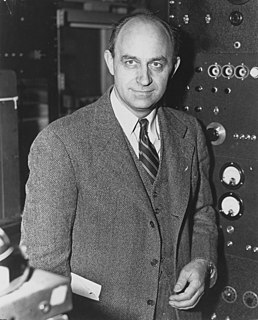A Quote by Fred Hoyle
Science is prediction, not explanation.
Quote Topics
Related Quotes
Historical science is not worse, more restricted, or less capable of achieving firm conclusions because experiment, prediction, and subsumption under invariant laws of nature do not represent its usual working methods. The sciences of history use a different mode of explanation, rooted in the comparative and observational richness in our data. We cannot see a past event directly, but science is usually based on inference, not unvarnished observation (you don't see electrons, gravity, or black holes either).
GIS, in its digital manifestation of geography, goes beyond just the science. It provides us a framework and a process for applying geography. It brings together observational science and measurement and integrates it with modeling and prediction, analysis, and interpretation so that we can understand things.
I would teach the world that science is the best way to understand the world and that for any set of observations, there is only one correct explanation. Also, science is value-free, as it explains the world as it is. Ethical issues arise only when science is applied to technology - from medicine to industry.

































